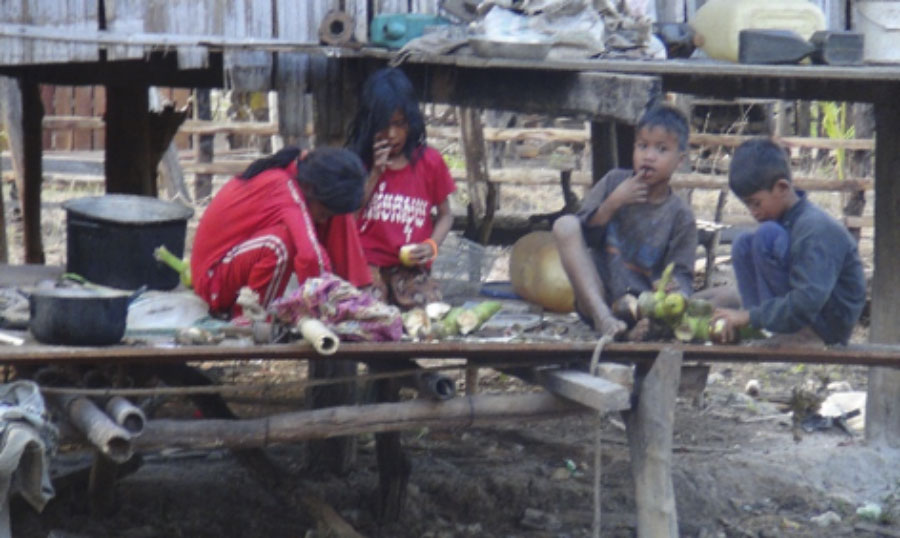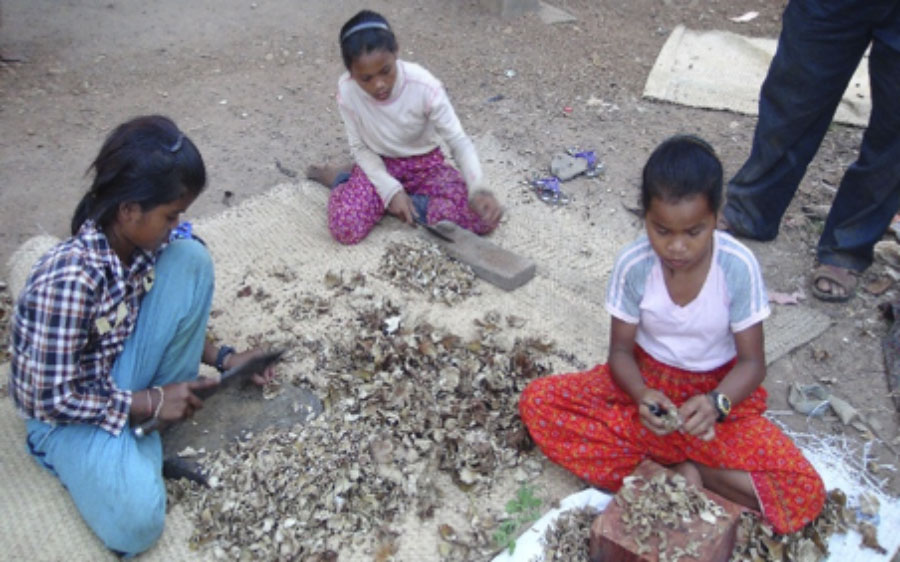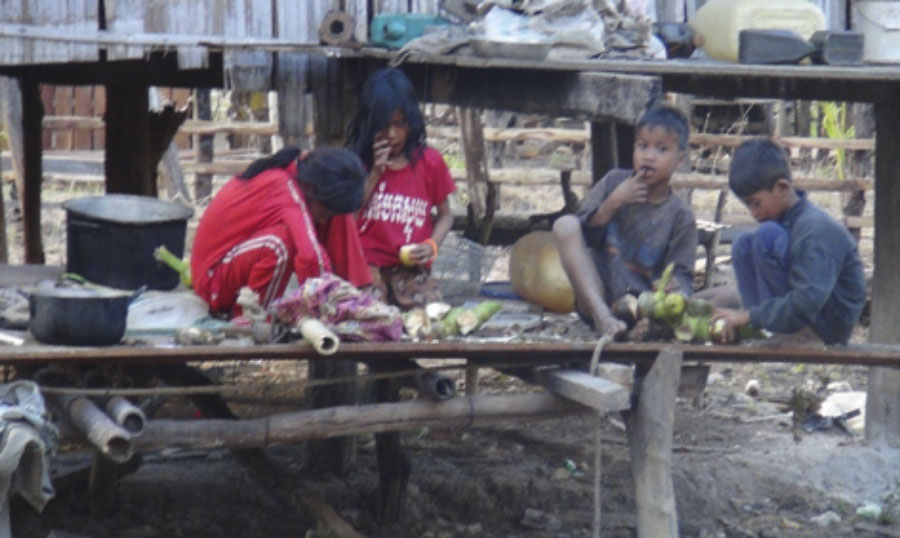
For a long time, the communities in Preah Vihear province of Cambodia were completely dependent on natural resources that provided them sufficient food and other needs. There was solidarity among the people. But in recent years, climate change caused drought, floods, storms, irregular rainfall and temperature throughout the year, severely affecting food production, cultural and livelihood activities. Food insecurity stalked six villages with around 500 indigenous Kui families.
Besides climate change, massive deforestation due to logging and reduction of their lands due to economic land concessions led to the loss of traditional occupations, reduction of agricultural output, lack of food, loss of income, and people’s anxiety. Many were mired in debt to microfinance institutions for their daily needs. Circumstances pushed Kui people to migrate for work, or engage in illegal logging to survive. Their cultural practices were undermined and they needed to strengthen their traditional knowledge and sustainable resource management systems to adapt to climate change and for food security. The impacts of land concessions to their livelihoods and environment compelled the Kui people to learn community action through group meetings and discussions.
The Kui people responded through awareness-raising on climate change and disaster risk response that involved hundreds of participants, significantly women and local authorities from the district, commune and village levels. They threshed out community issues such as rights to traditional land use, natural resource management, and diminishing traditional livelihoods. This learning process led to the revival of traditional practices such as resin-gathering, helping each other in farming, exchange labour in shifting cultivation and harvesting, hunting, cattle raising, NTFP harvesting, fruit and vegetable farming.
As agreed upon during community meetings, it was most practical and necessary to form cash saving groups, rice saving groups and build rice granaries in several villages. Community members realized the need in the context of food security through rice granary management and as a mechanism and response to disaster risk management. Rice barns are essential in every community and the rice saving group was to ensure that their communities are actively involved in addressing the challenges and impact of climate change.
The rice granary management training was implemented in six villages and community members learned techniques in pre- and post-harvest of rice such as quality and quantity of rice based on speed and duration of harvesting and drying. Tips were given on barn management and rice storage such as better moisture, amount of oxygen, pest control, and other preventive measures of wastage.
There is food security with seed banking of different rice varieties and food crops. Communities realize that seed banks are safe location for their traditional seeds and they distinguish the domestic from external seeds. Sadly, there is gradual loss of some traditional seeds and rapid flow of new or external seeds into indigenous farming sites. The communities resolved to conserve their traditional seeds and reminded the youth to be aware and interested in holding on to their traditional seeds for the future.
The documentation of the village history included traditional and cultural practices in resource management, such as praying to the rice spirit for better yields, appreciation of the forests as sacred places of spirits and source of traditional livelihoods. They also produced a video documentary about the communities’ assertion of rights to land title and forest use, their beliefs, and the challenges they face. The publication of materials on traditional knowledge and related cultural practices for climate resilience was used for inter-community learning with focus on the youth. The training enabled community representatives to learn from each other, understand the indigenous peoples’ rights to land, forest, natural resources and environment, FPIC, UNDRIP, concept and advantages of REDD+; and to make plans and strategies for their communities.
The project raised awareness on climate change and enhanced the use of traditional knowledge of the Kui people to increase their resilience to climate change particularly on food security. The project concluded with six communities’ enhanced resilience to climate change. They have rice granaries, seed banks, their traditional knowledge, their solidarity and cooperation to mitigate the harms of climate change.

The project “Strengthening IP traditional Knowledge and Adaptation to Climate Change” was implemented in 2017 by the Organization for the Promotion of Kui Culture in Cambodia with support from PAWANKA Fund.

